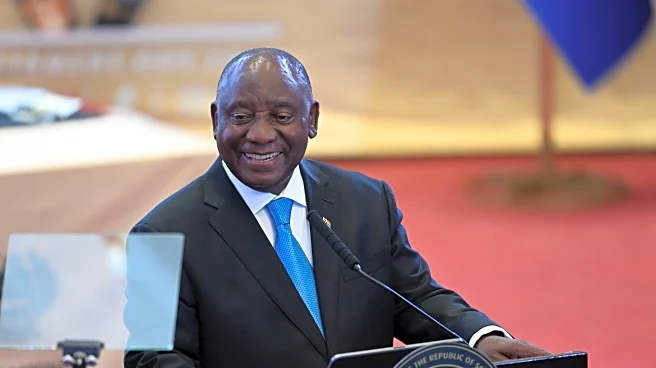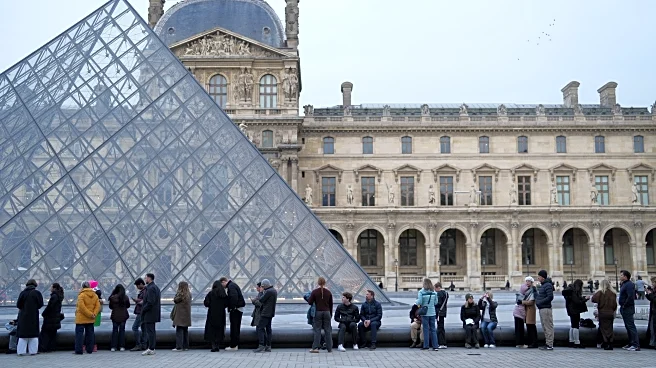What's Happening?
A federal judge has issued temporary orders blocking the Trump administration from deploying National Guard troops to Portland, Oregon. The decision comes as the administration seeks to send troops to manage protests at a U.S. Immigration and Customs Enforcement facility. The judge ruled that the deployment was unlawful, as it did not meet the criteria under Title 10, Section 12406 of the federal code, which requires a threat of rebellion or inability of local law enforcement to manage the situation. The case is now before the 9th U.S. Circuit Court of Appeals, which will decide whether to uphold the judge's restraining order.
Why It's Important?
The ruling highlights the ongoing tension between federal authority and state rights, particularly in the context of civil unrest and law enforcement. The deployment of National Guard troops has been a contentious issue, with critics arguing that it represents an overreach of federal power and could exacerbate tensions in cities already experiencing protests. The decision could set a precedent for how federal and state governments interact in managing civil disturbances, impacting future deployments and the balance of power between state and federal authorities.
What's Next?
The 9th Circuit Court of Appeals will review the case and decide whether to uphold the temporary restraining order. If the court sides with the Trump administration, National Guard troops could be deployed to Portland, potentially escalating tensions. The decision will be closely watched by other states and cities facing similar issues, as it could influence how they respond to federal intervention in local law enforcement matters.










